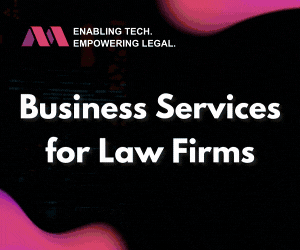Technology advancement rules at ILTACON 2018
This article was written by Jennifer Roberts, data scientist at Intapp
Last week’s ILTACON reaffirmed my belief that the confluence of technology and the legal industry is accelerating rapidly. In my opinion, this is good news for everyone – law firms, clients and vendors alike.
Here are some of my takeaways:
Tech buzzwords were ubiquitous – and that was a good thing
I couldn’t make it around a corner or through a presentation without hearing buzzwords like “AI,” “machine learning,” “blockchain” or “data science.” That’s far from a bad thing – it was exactly what I had hoped to hear, to be honest. These technologies, among others, are now firmly part of the bigger conversation about what it takes to compete successfully in 2018 and beyond.
While most of the conversations remained in the abstract, the most intriguing discussions focused on specific applications of these technologies. While there are some that have been productized (like the Intapp Professional Services platform), it was clear that many are still just individual pieces in custom-built, cobbled-together solutions. And many other opportunities have yet to be addressed.
A Welcome Legal Technology Reality Check
At a high level, ILTACON was an industry reality check for my colleagues and me. It also got me thinking about the 2017 Altman Weil Law Firms in Transition survey. So I went back and found some statistics that resonated most with what I heard at the event:
Only 7.5 percent of firms are beginning to make use of tools like Watson and Ross, followed by 28.8 percent which are only just beginning to explore opportunities like these.
The majority of firms (37.8 percent) simply just remain aware of what other firms are doing with technology; the remaining 25.9 percent are not even aware of what is going on in this area.
When you look at the breakdown of firm size, most of those which are actually exploring the use of newer technologies are large firms (1,000+ lawyers).
This graphic from the survey sums up the last point nicely.
No, robot lawyers aren’t taking over
An important distinction needs to be made about the place for these new technologies within law firms. Many headlines state something along the lines of “Robots to replace lawyers”– but the closer one looks at reality and actual use cases, the clearer it becomes that these technologies will augment jobs at firms and push lawyers and legal professionals to do higher-level work – the “art,” if you will.
The art of law is always in style
Data is king in 2018, so it’s imperative to figure out how to best leverage it with the appropriate technology tools. AI, machine learning and blockchain all have important roles to play. That’s all well and good, but my number one takeaway was this: there will always be an art involved in successfully practicing law to balance the science. By leveraging technology intelligently, vendors like Intapp enable lawyers and other legal professionals to do the higher-value, higher-margin work that their clients will always demand.



